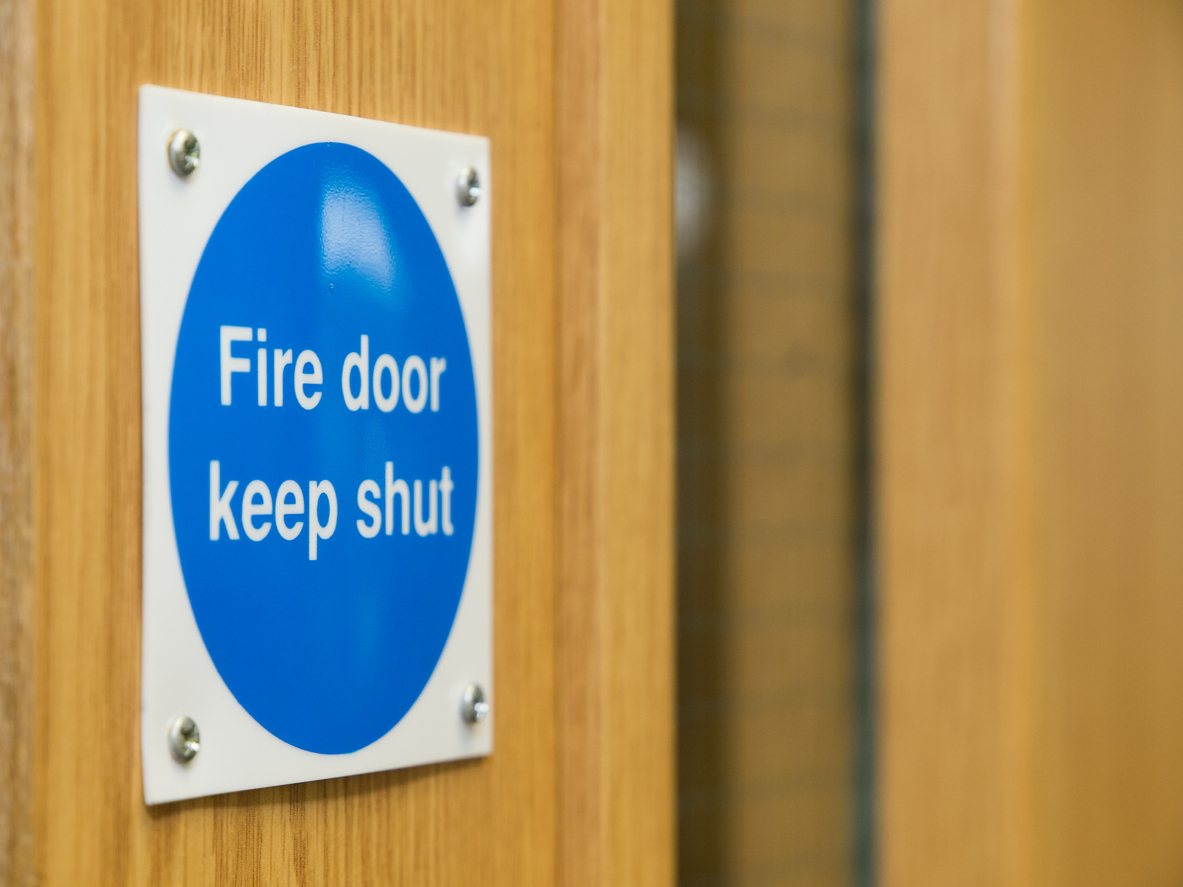Severe maladministration for Wandle’s lengthy delays on fire doors
10 January 2023
The Ombudsman made a severe maladministration finding for Wandle after it failed to confirm whether the doors in a resident’s flat were fire-rated or needed replacing, despite numerous visits to the property.

We found severe maladministration for Wandle’s cumulative failures in addressing fire safety issues in a resident’s flat. Despite several visits, the landlord was unable to provide assurance that the doors were fire-rated and whether that meant they needed replacing. The resident also raised concerns about the condition of some of the doors, which were not dealt with promptly.
The resident first requested confirmation that all the doors were fire doors upon moving in following a mutual exchange. However, four visits later over a period of nine months, the landlord still had not clarified. Prompting the resident to send another letter seeking confirmation. Feeling this was a fire safety issue, the resident voiced concerns about the front door missing a fire strip and not fitting the frame.
The resident, who had recorded vulnerabilities including autism and Asperger’s Syndrome, then raised a stage one complaint. In response to which the landlord said it would assess the doors in the property.
However, subsequent visits still did not establish whether or not the doors in the property were fire doors. The resident wanted to know whether the landlord had responsibility for fixing the faulty doors she had previously raised concerns about.
The landlord escalated the complaint to stage two. They arranged for a window and door survey to be carried out and to finish works which were incomplete. The survey found that the front door required a new fire door, that a new fire door was needed for the lounge and that other door defects needed repairing.
At the end of this process, 18 months after the resident had first moved in, the landlord had still not replaced the front door.
We found that while the landlord rectified the matter by arranging a door survey, there was a delay in addressing the fire safety issue raised by the resident – a fundamental area of the landlord’s responsibilities. The landlord initially treated the issue as a responsive repair, rather than a fire safety issue.
The inspection at mutual exchange was unsatisfactory as the missing kitchen door should have been picked up. These cumulative failures meant the fire safety issues in the home went unaddressed for a significant period, causing worry and frustration.
Following the investigation, the landlord’s learning included reviewing both its mutual exchange policy and its complaint handling process, as well as making it easier for staff to identify when a resident has a vulnerability.
The landlord was subject to two Complaint Handling Failure Orders in the latest quarterly report covering July to September 2022.
Richard Blakeway, Housing Ombudsman, said: “Given the intense focus on building safety following the tragic events at Grenfell, it is deeply concerning and unacceptable that the resident had to go to extraordinary lengths to resolve the issues with the fire doors.
“There were several missed opportunities in this case. While the landlord rectified the matter by arranging a door survey, there was a delay in a fundamental area of the landlord’s responsibilities.
“The landlord should also have been aware that the kitchen door, which was supposed to be a fire door, was missing. It would be expected that the landlord would have undertaken an inspection of the property at the time of the mutual exchange applications, as standard good practice, if not part of its mutual exchange procedures.
“Not only was the landlord potentially remiss in relation to its duties in relation to fire safety but the resident was put to the trouble, inconvenience, and stress of pursuing the issue.
“I would also expect the landlord to ensure that it reassured the resident by providing a clear explanation of its decisions or took steps to carry out fire safety checks. It was also concerning the landlord did not account for the resident’s vulnerabilities during the complaints process.
“I welcome the landlord’s response on its learning from this case and the changes being made to improve its service. I would encourage other landlords to consider the learning the case offers for their own services.”
We also found maladministration in the landlord’s complaint handling. While a relevant survey was arranged for the resident’s property, the complaint process did not indicate a meaningful investigation or review or take into account the resident’s particular vulnerabilities. The complaints process missed opportunities to raise and address the resident’s concerns about fire safety.
We ordered the landlord to pay £700 in compensation. And to ensure that works and repairs noted as being needed in the last survey were completed.
In all cases of severe maladministration, the landlord is invited to set out what it learnt from the case.
Wandle learning statement
“We’re deeply sorry that our service to this resident didn’t meet the standard we strive to deliver, and thank the Housing Ombudsman for allowing us to learn from this case.
“We have apologised unreservedly to the tenant affected, and have fully complied with the orders, and have reviewed policies and procedures to prevent something like this from happening again, including:
- Reviewing our mutual exchange policy and procedures, and adjusting our procedures.
- Reviewing our complaint handling process, and moving staff roles into the Customer Resolution team, to better manage response times and satisfaction.
- Improved training for all staff in complaint handling, in particular for new starters to the organisation.
- Made it easier for colleagues to identify when a resident has a vulnerability or particular need that needs to be considered.
“We value our relationship with the Housing Ombudsman service, and always use feedback and findings to continually improve service, constantly striving to deliver outcomes for customers that make us proud.”
